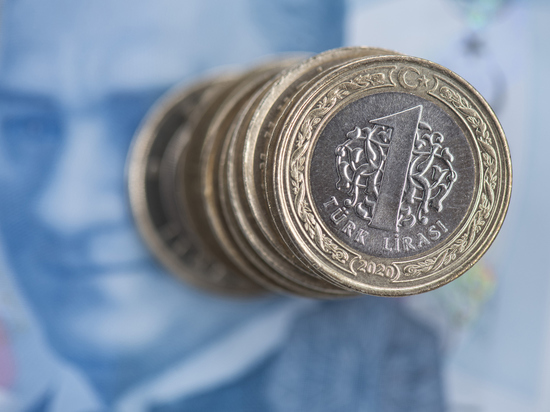Rupees and lira will replace the euro and pounds in the government moneybox
[ad_1]

The National Wealth Fund will become friendlier, but less reliable
The Russian Ministry of Finance plans to replenish the National Wealth Fund – the country’s main government fund – with the currencies of friendly states. This was reported in the draft main directions of monetary policy for the next three years, published the day before by the Central Bank. The monetary authorities are considering the Chinese yuan, the Indian rupee, the Turkish lira and other currencies of Russia-friendly countries as an alternative to the euro and pounds sterling. But friendship is friendship, and what will be the degree of reliability of such investments?
“The Russian Ministry of Finance is studying the possibility of implementing an operational mechanism of the budget rule for replenishing / spending funds from the NWF in the currencies of friendly countries (yuan, rupees, Turkish lira and others),” the Central Bank said in a report.
As you know, with the introduction of sanctions, operations under the budget rule with dollars and euros became impossible. Accordingly, various options for transforming the budget rule are now being discussed, in the course of which scenarios are being considered for replacing the currencies of “unfriendly” states in the NWF. The Central Bank explained that when implementing the project of the Ministry of Finance regarding “friendly” currencies, the budget rule will again be able to affect the ruble exchange rate. After all, its too high level in recent months has caused concern to the government.
Recall that at present, reserves worth 12.2 trillion rubles, or about $200 billion, are stored in the government’s “box”. It was decided to abandon the dollar share (which was 36% at the beginning of 2020) last year. However, it is better not to remember about dollars. As a result, the fund’s portfolio now looks like this: 40% of assets are held in euros, 30% in yuan, 10% each in pounds and yen. The rest is in gold in an impersonal form and native rubles.
At the same time, at the end of July, the Accounts Chamber proposed to change the structure of the National Welfare Fund in a similar way. Now, it seems that this recommendation is becoming a fact. Which is probably quite justified from a political point of view, but doubtful from an economic point of view. “The motive for abandoning “unfriendly” currencies is understandable, but I would not rush into this step, which seems to me wrong,” says Igor Nikolaev, chief researcher at the Institute of Economics of the Russian Academy of Sciences.
After all, initially the currency structure of the National Welfare Fund focused on the most stable assets during periods of crises in the Russian economy and took into account their reliability, liquidity, free convertibility and the capacity of financial markets. “Unfortunately, there is no equivalent replacement in terms of investment quality among the currencies of friendly states,” says Olga Belenkaya, head of the macroeconomic analysis department at Finam. “The best option can be considered the yuan, but it is not yet a freely convertible currency.”
For examples that clearly illustrate the thesis about the unreliability of a number of “friendly” currencies, unfortunately, one does not have to go far. The Turkish lira, which is on the list for potential replenishment of the NWF, has been in serious trouble lately. During the year, its rate fell by half against the “unfriendly” dollar, and the annual inflation rate in Turkey approached 80%. Whether this option of investing Russian funds will greatly help the domestic economy is a rhetorical question.
It will not be so easy to implement the Ministry of Finance’s initiative to switch to friendly currencies, Associate Professor of the Russian University of Economics them. Plekhanov Vadim Kovrigin. After all, the euro, along with the dollar, has the highest degree of liquidity and stability. And there are incomparably more opportunities for investment in the eurozone, and less costs than in Asia and South America. Assets of developing countries, as a rule, are much more risky and less liquid, the expert notes. At the same time, he admits that in the context of the current geopolitical instability, the NWF portfolio will have to be diversified in any case – mainly, according to Kovrigin, at the expense of the yuan, as well as an increase in the share of gold and other precious metals.
[ad_2]
Source link






